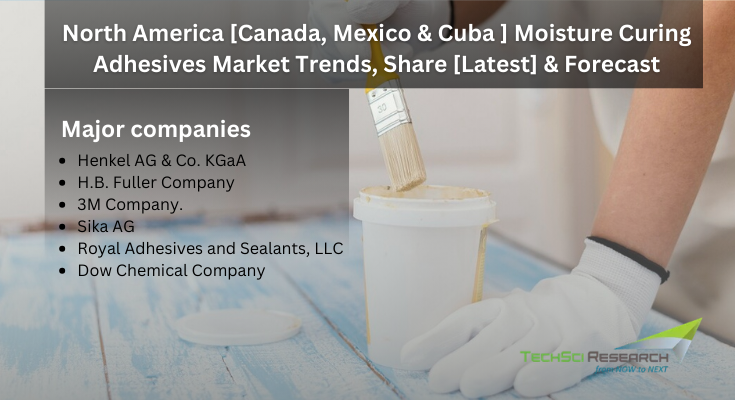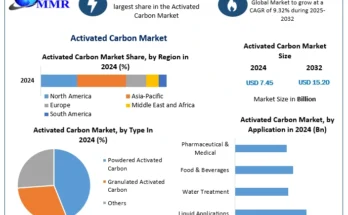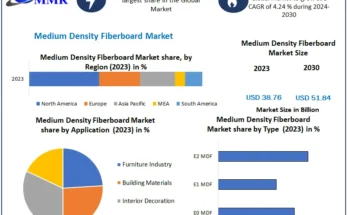According to TechSci Research report, “Moisture Curing Adhesives Market – North America Industry Size, Share, Trends, Competition Forecast & Opportunities, 2028”, the North America Moisture Curing Adhesives Market stood at USD 1.32 billion in 2022 and is anticipated to grow with a CAGR of 5.06% in the forecast period, 2024-2028. Moisture curing adhesives are a class of adhesives that cure in the presence of moisture or humidity, eliminating the need for additional heat or catalysts. This unique characteristic makes them suitable for a wide range of applications, from automotive and construction to electronics and medical devices. The market for moisture curing adhesives has witnessed substantial growth in recent years, driven by factors such as versatility, quick curing times, and environmental considerations.
The Moisture curing adhesives market is a dynamic landscape shaped by versatility, innovation, and a commitment to sustainability. As technology continues to evolve and industries seek advanced bonding solutions, the role of moisture curing adhesives is set to become even more integral in the manufacturing landscape. Manufacturers and researchers alike are navigating challenges and capitalizing on opportunities to ensure that these adhesives remain at the forefront of adhesive technology.
Browse over XX market data Figures spread through XX Pages and an in-depth TOC on “North America Moisture Curing Adhesives Market.” @ https://www.techsciresearch.com/report/north-america-moisture-curing-adhesives-market/19855.html
The North America Moisture Curing Adhesives Market is segmented into chemistry, application, regional distribution, and company.
Polyurethane-based moisture curing adhesives are revered for their exceptional versatility and strong bonding capabilities. With a chemical structure that allows for cross-linking in the presence of moisture, polyurethane adhesives find extensive applications in the construction, automotive, and aerospace industries. The ability to adhere to various substrates, coupled with excellent durability, positions polyurethane as a cornerstone in the moisture curing adhesives market.
Silicone-based moisture curing adhesives are prized for their high resistance to temperature, UV radiation, and weathering. Widely utilized in electronics, automotive, and medical applications, silicone adhesives provide reliable bonding while offering flexibility and environmental resistance. The moisture-curing mechanism of silicones makes them well-suited for applications where rapid curing is advantageous.
Known for their fast-curing times and strong bonds, cyanoacrylate-based moisture curing adhesives have carved a niche in applications requiring precision and rapid assembly. The electronics and medical industries benefit from the instantaneous bonding capabilities of cyanoacrylates, which cure rapidly upon exposure to ambient moisture.
Polyolefin-based moisture curing adhesives offer a unique set of properties, including low toxicity and exceptional adhesion to plastics. Industries such as packaging and automotive favor polyolefin adhesives for their ability to bond challenging substrates and withstand diverse environmental conditions.
The automotive industry relies on moisture curing adhesives for a range of applications. Their exceptional bonding strength and durability make them ideal for joining dissimilar materials in vehicle assembly. From bonding lightweight materials for improved fuel efficiency to enhancing structural integrity in automotive components, these adhesives play a pivotal role in advancing automotive manufacturing technologies.
In the woodworking industry, moisture curing adhesives have revolutionized traditional bonding methods. The versatility of these adhesives allows for bonding different wood types, providing robust and durable joints. Whether in furniture manufacturing or the construction of wooden structures, moisture curing adhesives offer a reliable solution, contributing to the longevity and stability of wood-based products.
The textile industry benefits from the fast-curing properties of moisture curing adhesives in various applications. From laminating fabrics to bonding textiles in the production of apparel, these adhesives provide a quick and efficient bonding solution. Their ability to cure at room temperature without the need for additional energy sources makes them well-suited for textile applications, where precision and speed are essential.
Major companies operating in North America Moisture Curing Adhesives Market are:
- Henkel AG & Co. KGaA
- H.B. Fuller Company
- 3M Company.
- Sika AG
- Royal Adhesives and Sealants, LLC
- Dow Chemical Company
- Dymax Corporation
- Jowat SE
- Bostik SA
- Tosoh Corporation
To Download FREE Sample Pages of this Report📥 @ https://www.techsciresearch.com/sample-report.aspx?cid=19855
Customers can also request for 10% free customization on this report.
“Advancements in achieving faster curing times have been a focal point in recent developments. The need for rapid assembly processes in industries like automotive and electronics is driving research toward formulations that offer swift curing without compromising bond strength. These innovations are enhancing efficiency in production cycles and contributing to the overall operational excellence of manufacturing processes. the recent developments in moisture-curing adhesives showcase a trajectory toward enhanced performance, versatility, and sustainability. From groundbreaking formulations to applications in cutting-edge technologies, these developments underscore the pivotal role of moisture curing adhesives in shaping the future of industrial bonding solutions. As industries continue to evolve, the market for moisture curing adhesives is set to witness further innovation and growth.,” said Mr. Karan Chechi, Research Director with TechSci Research, a research-based management consulting firm.
“Moisture Curing Adhesives Market – North America Industry Size, Share, Trends, Opportunity, & Forecast 2018-2028 Segmented By Chemistry (Polyurethane, Silicone, Cyanoacrylate, Polyolefin), By Application (Building and Construction, Automotive, Woodworking, Textile, Others), By Region, Competition”, has evaluated the future growth potential of North America Moisture Curing Adhesives Market and provides statistics & information on market size, structure and future market growth. The report intends to provide cutting-edge market intelligence and help decision-makers take sound investment decisions. Besides, the report also identifies and analyzes the emerging trends along with essential drivers, challenges, and opportunities in the North America Moisture Curing Adhesives Market.
You may also read:
Resorbable (Bioresorbable) Polymers Market | [2028] Exploring Growth, Potential, and Future, Trends
Expandable Graphite Market [2028] – Report & Share
Aerographite Market Outlook & Forecast [2028]
Table of Content-North America Moisture Curing Adhesives Market
- Product Overview
1.1. Market Definition
1.2. Scope of the Market
1.2.1. Markets Covered
1.2.2. Years Considered for Study
1.2.3. Key Market Segmentations
- Research Methodology
2.1. Objective of the Study
2.2. Baseline Methodology
2.3. Key Industry Partners
2.4. Major Association and Secondary Applications
2.5. Forecasting Methodology
2.6. Data Triangulation & Validation
2.7. Assumptions and Limitations
- Executive Summary
3.1. Overview of the Market
3.2. Overview of Key Market Segmentations
3.3. Overview of Key Market Players
3.4. Overview of Key Regions/Countries
3.5. Overview of Market Drivers, Challenges, Trends
- Impact of COVID-19 on North America Moisture Curing Adhesives Market
- North America Moisture Curing Adhesives Market Outlook
5.1. Market Size & Forecast
5.1.1. By Value & Volume
5.2. Market Share & Forecast
5.2.1. By Chemistry (Polyurethane, Silicone, Cyanoacrylate, Polyolefin)
5.2.2. By Application (Building and Construction, Automotive, Woodworking, Textile, Others)
5.2.3. By Country (United States, Mexico, Canada)
5.2.4. By Company (2022)
5.3. Market Map
- United States Moisture Curing Adhesives Market Outlook
6.1. Market Size & Forecast
6.1.1. By Value & Volume
6.2. Market Share & Forecast
6.2.1. By Chemistry
6.2.2. By Application



